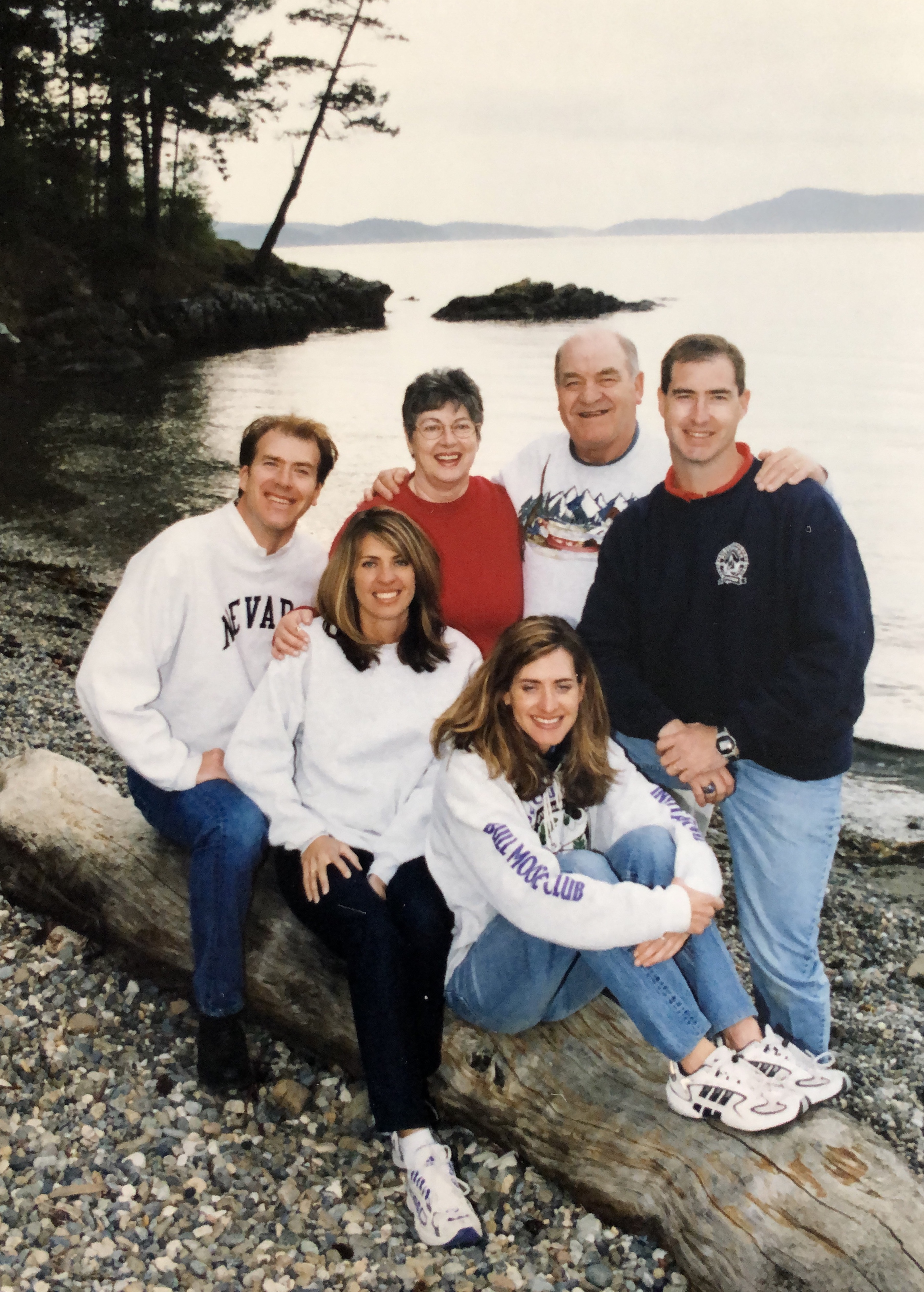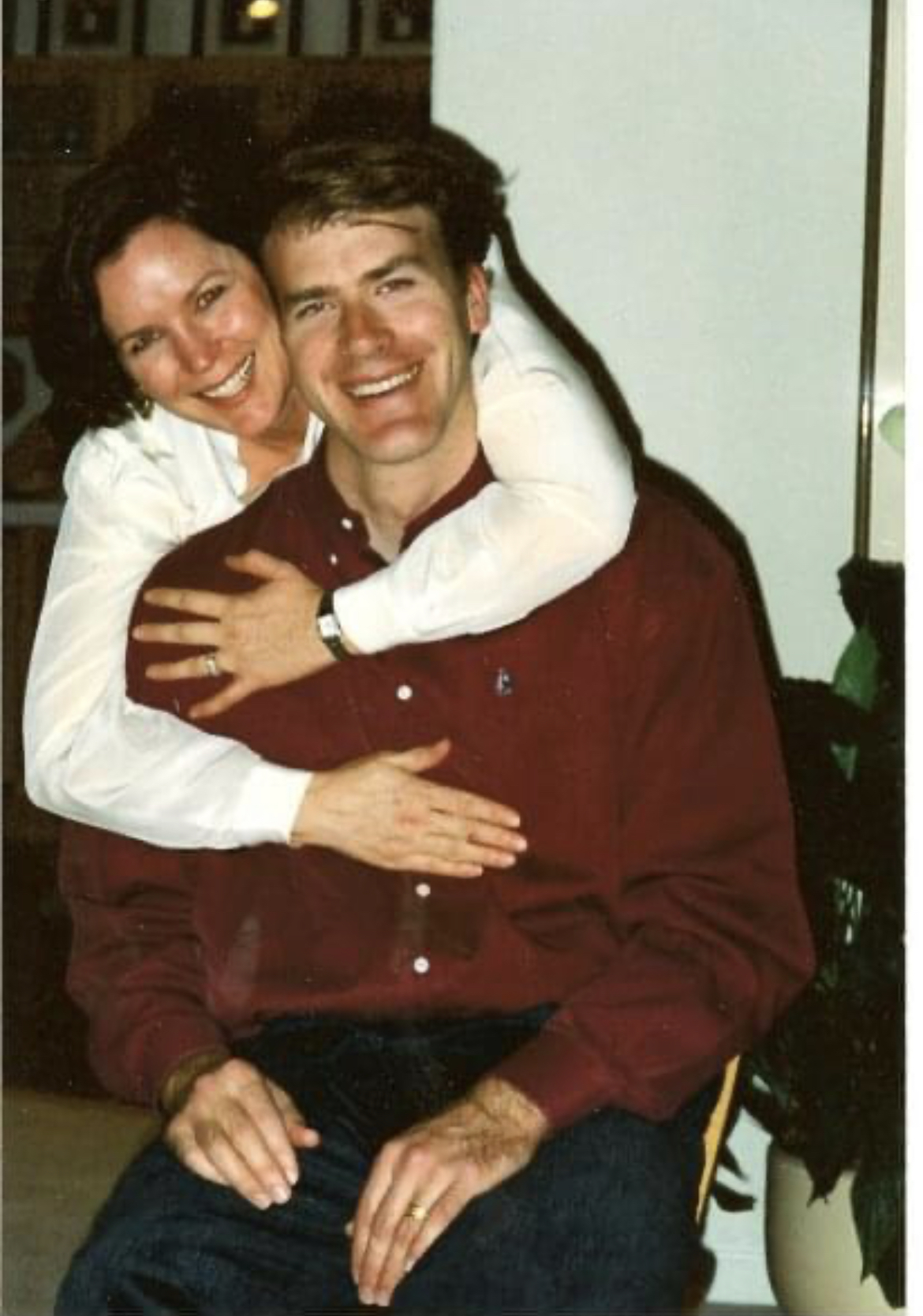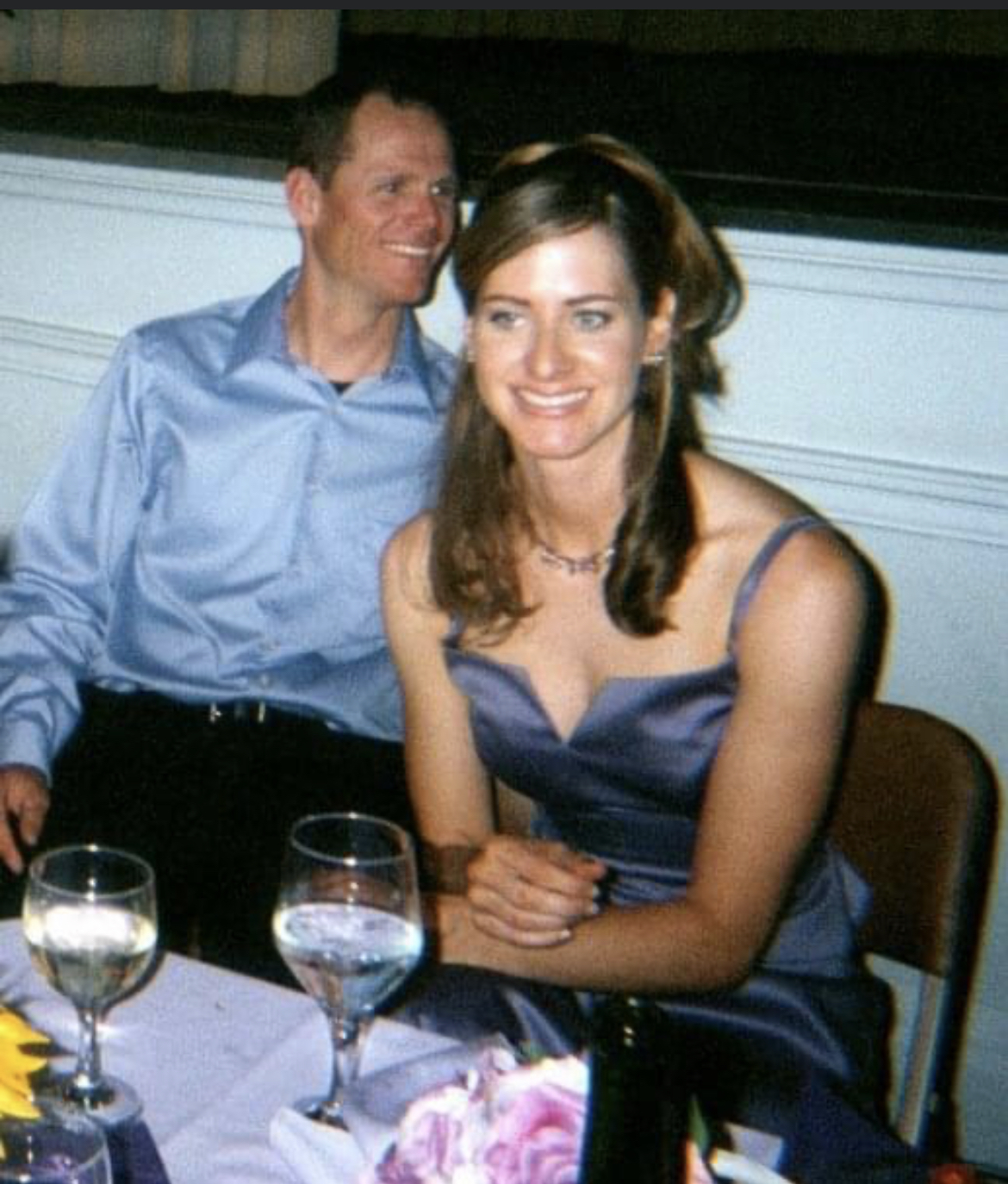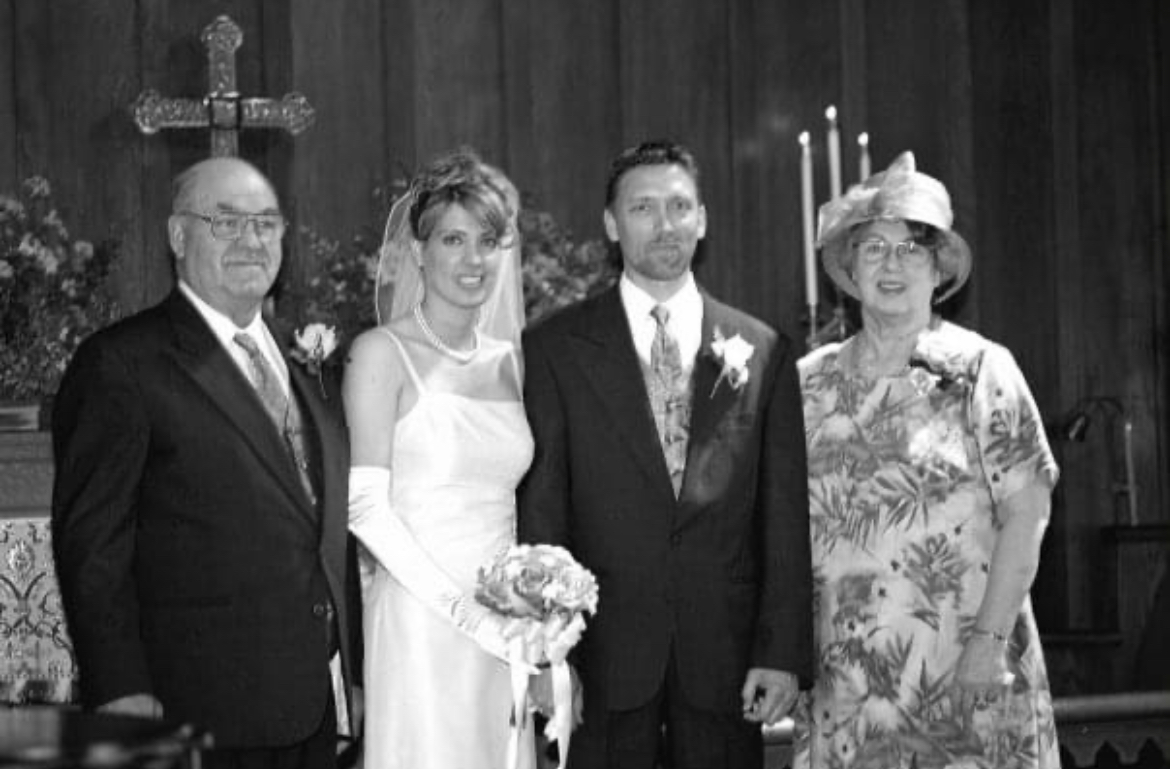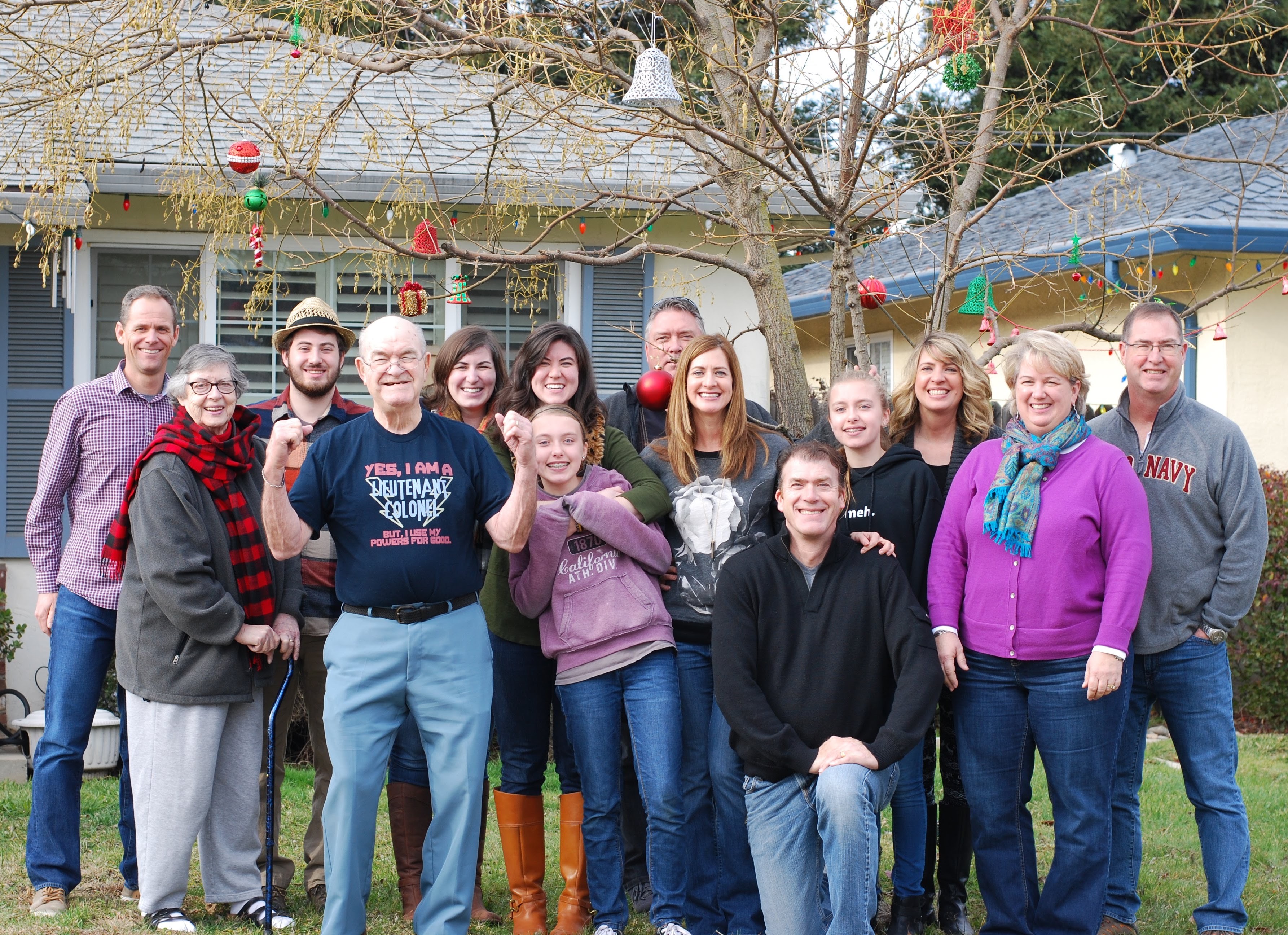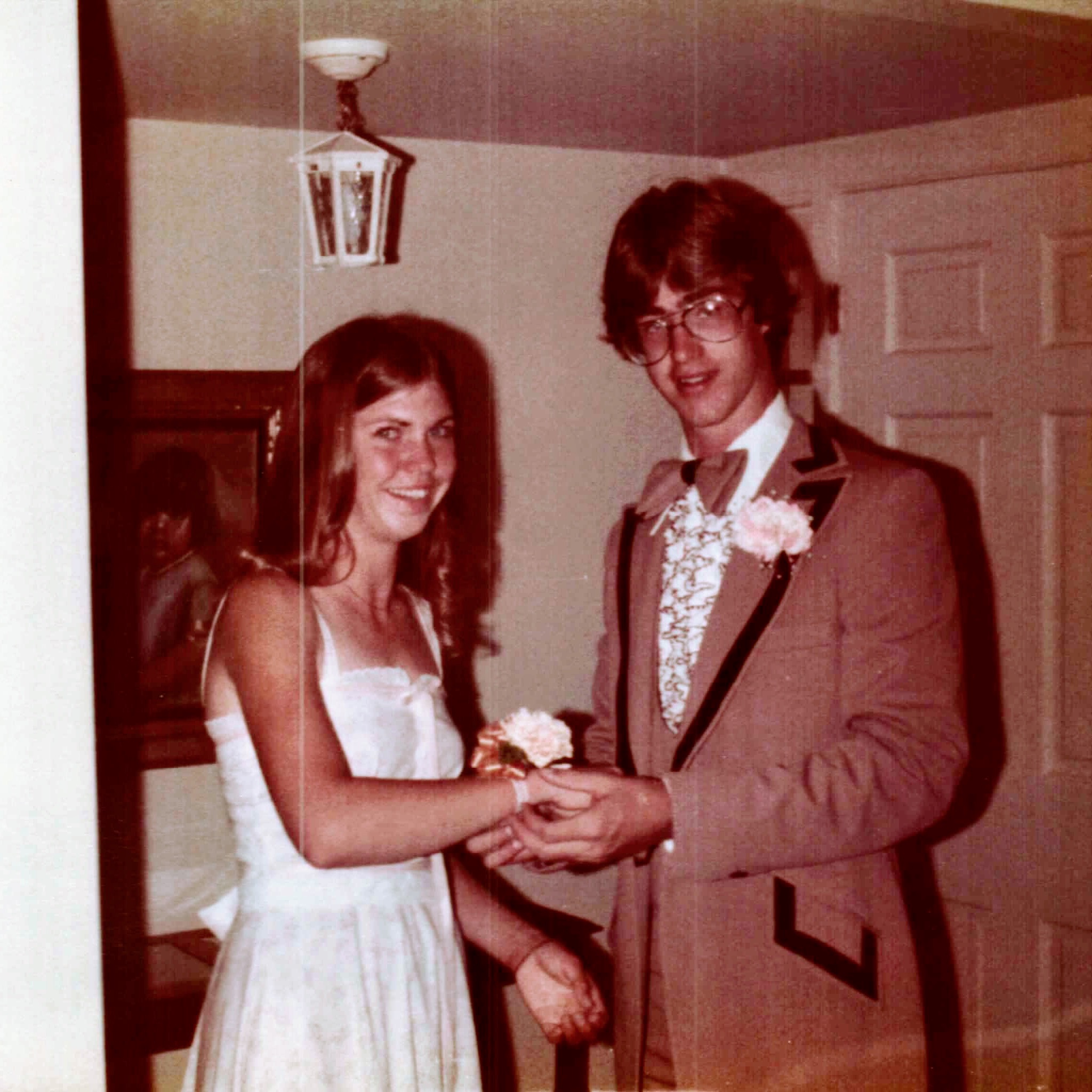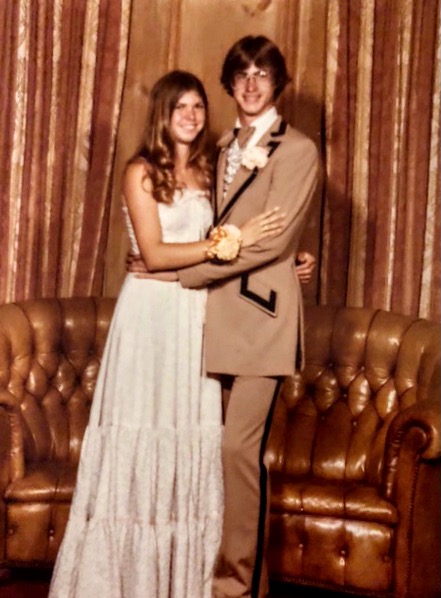One of the benefits of being in a military family growing up was the opportunity to travel all over the world. The drawback of getting the chance to live in lots of different places across the globe was the lack of contact with extended family.
Because we moved home to Anacortes while my Dad was overseas in Vietnam and Korea, I actually got to know my Mom’s side of the family fairly well. Unfortunately, not so much on my Dad’s side.
My Dad’s father, Gerhard Ambrotious Branby, passed away 28 March, 1955, exactly 5 years before I was born. Born on 12 April, 1900, he was just shy of 55 when he passed. His parents were Ole Olav Olavsson Brandby, and Helga K. Strand.
From what I know, he had lived with Type I Diabetes most of his adult life. It didn’t prevent him from having and raising six strong kids, but I don’t think he worked steady jobs. My dad wrote about his father thusly:
“Dad was a diabetic and a serious one. That was one stigma that hung over the entire family as we witnessed his twice daily insulin injections, and every once in a while he would lapse into a coma and scare us all half to death. But, somehow he seemed to survive and he would be right back at it again. He was a man of ‘True Grit.’ He could have given up anytime but he was too stubborn… My Dad went to work for the WPA (Works Progress Administration - a government sponsored program that put in all the sewer systems in the town of Glenwood). I believe he made somewhere in the neighborhood of $45 a month.”
About his mother, Esther Lovina Helland (4 January, 1900 - 31 Jan 1990), he wrote:
“Mother was a truly magnificent woman. She struggled through raising six kids on a meager budget. With help from the farm: butter, eggs, meat etc. and some monthly support from “Direct Relief,” a Depression program, we all ate and subsisted fairly well.
Mom made clothes, we always had a garden, baked all our own bread and all in all never really suffered.”
Living mostly overseas, or in Washington growing up, I don’t remember meeting her too many times, though there were a couple times she came to see us, or we went to Minnesota. My cousins remember her quite fondly, and I do regret that we didn’t get to know her better. Her parents were Mikkel Eriksen Helland and Ingaborg Knutsdatter Hoverud.
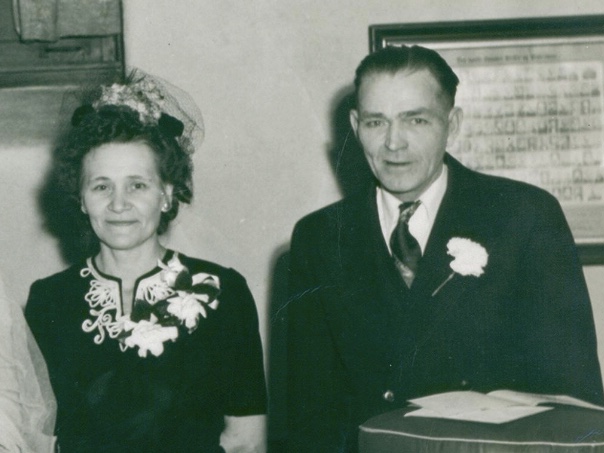
Being stationed on the west coast, or actually living up in Anacortes while my Dad was in Vietnam, or stationed in Korea, we spent a lot of time with my Mom’s parents. They also came and visited us once or twice, the last being when we lived in Las Vegas; so it felt like we were regular members of the same family.
My Grandmother, Cora Jo Robeson, was born in Bogota, Tennessee, on 27 January, 1911. Her parents were Hawkins Eugene Robeson and Roberta ‘Bertie’ Lane Strachn.
By the time I remember her, after we came back from England and while my Dad was deployed in 1965-1966, she would have been about 54 or so. Looking back she seemed old, with grey hair already, and a very soft Texas drawl. They lived in Burlington in a little yellow house, and we would go visit them a lot. While she seemed very stern to me (and had no problem smacking my behind when I got out of hand), they also had this one magic drawer in the kitchen that had toys in it, just waiting for us to come visit.
She came to my college graduation, and one of my favorite pictures is the two of us after the Graduation parade.
My Grandmother, Cora Jo Robeson, was born in Bogota, Tennessee, on 27 January, 1911. Her parents were Hawkins Eugene Robeson and Roberta ‘Bertie’ Lane Strachn.
By the time I remember her, after we came back from England and while my Dad was deployed in 1965-1966, she would have been about 54 or so. Looking back she seemed old, with grey hair already, and a very soft Texas drawl. They lived in Burlington in a little yellow house, and we would go visit them a lot. While she seemed very stern to me (and had no problem smacking my behind when I got out of hand), they also had this one magic drawer in the kitchen that had toys in it, just waiting for us to come visit.
She came to my college graduation, and one of my favorite pictures is the two of us after the Graduation parade.
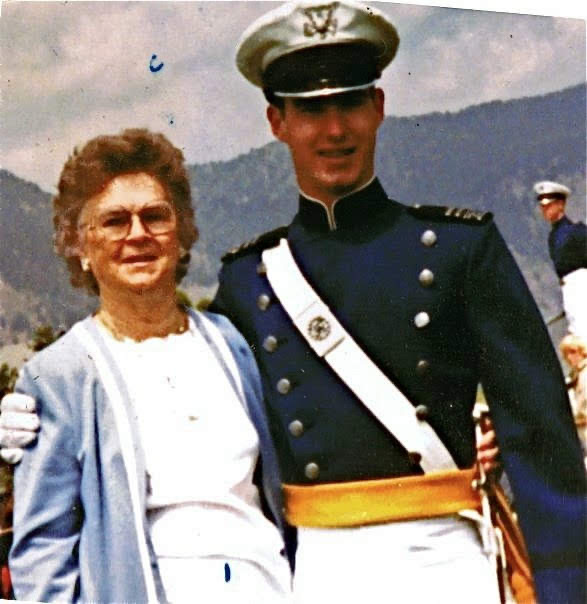
My grandfather, Frank Henry Elder, was born on 2 May, 1906, in Cottle County, Texas. His parents were Francis Marion Elder, and Bethenia ‘Bettie’ Nance.
Not sure how or when they met, but this picture must have been taken at their 50th Anniversary.
Not sure how or when they met, but this picture must have been taken at their 50th Anniversary.
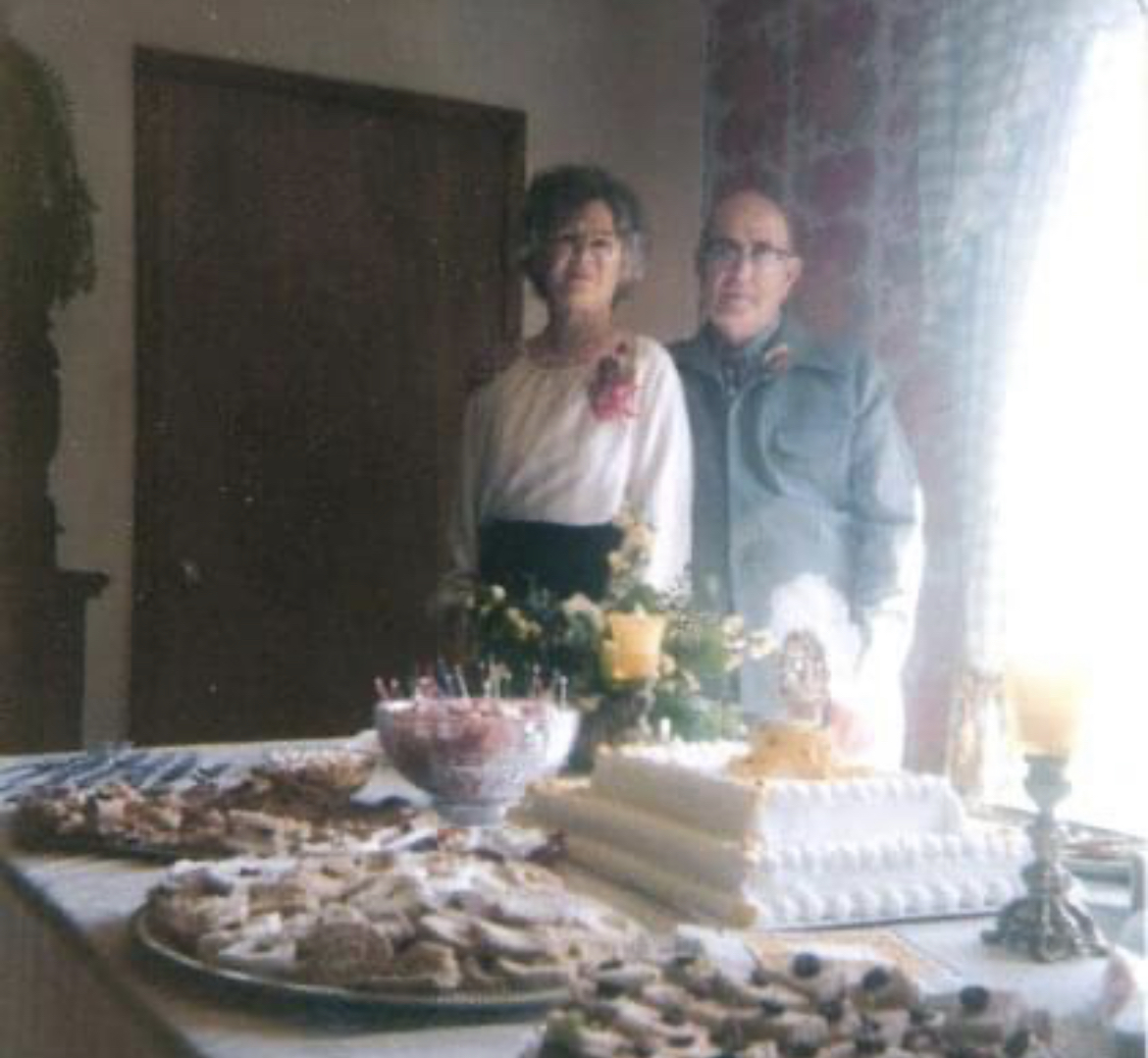
My Aunt Jocie put together some memories of her Dad, and include the following:
“My knowledge of daddy’s (Frank Henry Elder) story began with his mother (Bettie Nance Elder) passed away. He was only five years old but he treasured the love she gave him and mentioned her frequently throughout his life. When she died, he and dad’s younger sister (Lilli Mae Elder-Ledbetter) were sent away to live with relatives until his father (Francis Marion Elder) remarried. His new wife (Rhoda Gray Bledsoe), had a son (John William Bledsoe) who was near daddy’s age. In the course of time, they had a daughter (Dorothy Rosie Lee Elder) together so dad eventually had two sisters.
Apparently, there was a lot of competition between the two boys. For whatever reason dad felt very much the step child. I only saw his step mother one time when I was about 10 years old. She seemed old, sullen and reeked with the smell of chewing tobacco.
Apparently beatings were common place because when he was a young man, his step mother went into another rage and started beating him again. Dad said that he took the stick away from her, broke it in half and ran away from home, hiding in the mountains (I don’t know what mountains, because they lived in Texas) but dad was totally alone
Time marched on and somehow dad found a way to pay for college, earning his teaching certificate as a science and math teacher (eventually earning a Masters’ Degree in Science). Dad’s first teaching positon was in Pooleville, Texas, where he met and fell in love with my mother, Cora Jo Robeson.
Dad’s ultimate educational goal was to earn his doctoral degree but while he was working to complete it, life intervened and momma had given birth to their 6th daughter. She was so terrible anemic and physically run down that he was needed at home to care and supervise the family.
Dad was a valiant man, who was dedicated to his wife and family so he gave up his career dream to take care of momma and my two little sisters and I.”
In the midst of that education, he served in WWII, station in the Aleutian Islands with the Navy. When he came home, he went to school (possible with the GI Bill?), earned another degree, then moved his family back to Texas to work as a Principal in Brock, Texas.
“Cora Jo Robeson was always Dad’s sweetheart. Every single Mother’s Day he gave her a corsage with 6 red roses in it. He said there was one red rose for each daughter she gave him.”
My biggest memories of Grampa was that he was a quiet, gentle soul. He rarely talked much (maybe Grandma did all the talking?), but took everything in. He would sit with a milk carton full of paper towels and spit tobacco juice in it whenever we visited or he came to visit. He also smoked a pipe. You couldn’t sit on his lap because he had somehow hurt it. Maybe as the result of a stroke.
“My knowledge of daddy’s (Frank Henry Elder) story began with his mother (Bettie Nance Elder) passed away. He was only five years old but he treasured the love she gave him and mentioned her frequently throughout his life. When she died, he and dad’s younger sister (Lilli Mae Elder-Ledbetter) were sent away to live with relatives until his father (Francis Marion Elder) remarried. His new wife (Rhoda Gray Bledsoe), had a son (John William Bledsoe) who was near daddy’s age. In the course of time, they had a daughter (Dorothy Rosie Lee Elder) together so dad eventually had two sisters.
Apparently, there was a lot of competition between the two boys. For whatever reason dad felt very much the step child. I only saw his step mother one time when I was about 10 years old. She seemed old, sullen and reeked with the smell of chewing tobacco.
Apparently beatings were common place because when he was a young man, his step mother went into another rage and started beating him again. Dad said that he took the stick away from her, broke it in half and ran away from home, hiding in the mountains (I don’t know what mountains, because they lived in Texas) but dad was totally alone
Time marched on and somehow dad found a way to pay for college, earning his teaching certificate as a science and math teacher (eventually earning a Masters’ Degree in Science). Dad’s first teaching positon was in Pooleville, Texas, where he met and fell in love with my mother, Cora Jo Robeson.
Dad’s ultimate educational goal was to earn his doctoral degree but while he was working to complete it, life intervened and momma had given birth to their 6th daughter. She was so terrible anemic and physically run down that he was needed at home to care and supervise the family.
Dad was a valiant man, who was dedicated to his wife and family so he gave up his career dream to take care of momma and my two little sisters and I.”
In the midst of that education, he served in WWII, station in the Aleutian Islands with the Navy. When he came home, he went to school (possible with the GI Bill?), earned another degree, then moved his family back to Texas to work as a Principal in Brock, Texas.
“Cora Jo Robeson was always Dad’s sweetheart. Every single Mother’s Day he gave her a corsage with 6 red roses in it. He said there was one red rose for each daughter she gave him.”
My biggest memories of Grampa was that he was a quiet, gentle soul. He rarely talked much (maybe Grandma did all the talking?), but took everything in. He would sit with a milk carton full of paper towels and spit tobacco juice in it whenever we visited or he came to visit. He also smoked a pipe. You couldn’t sit on his lap because he had somehow hurt it. Maybe as the result of a stroke.
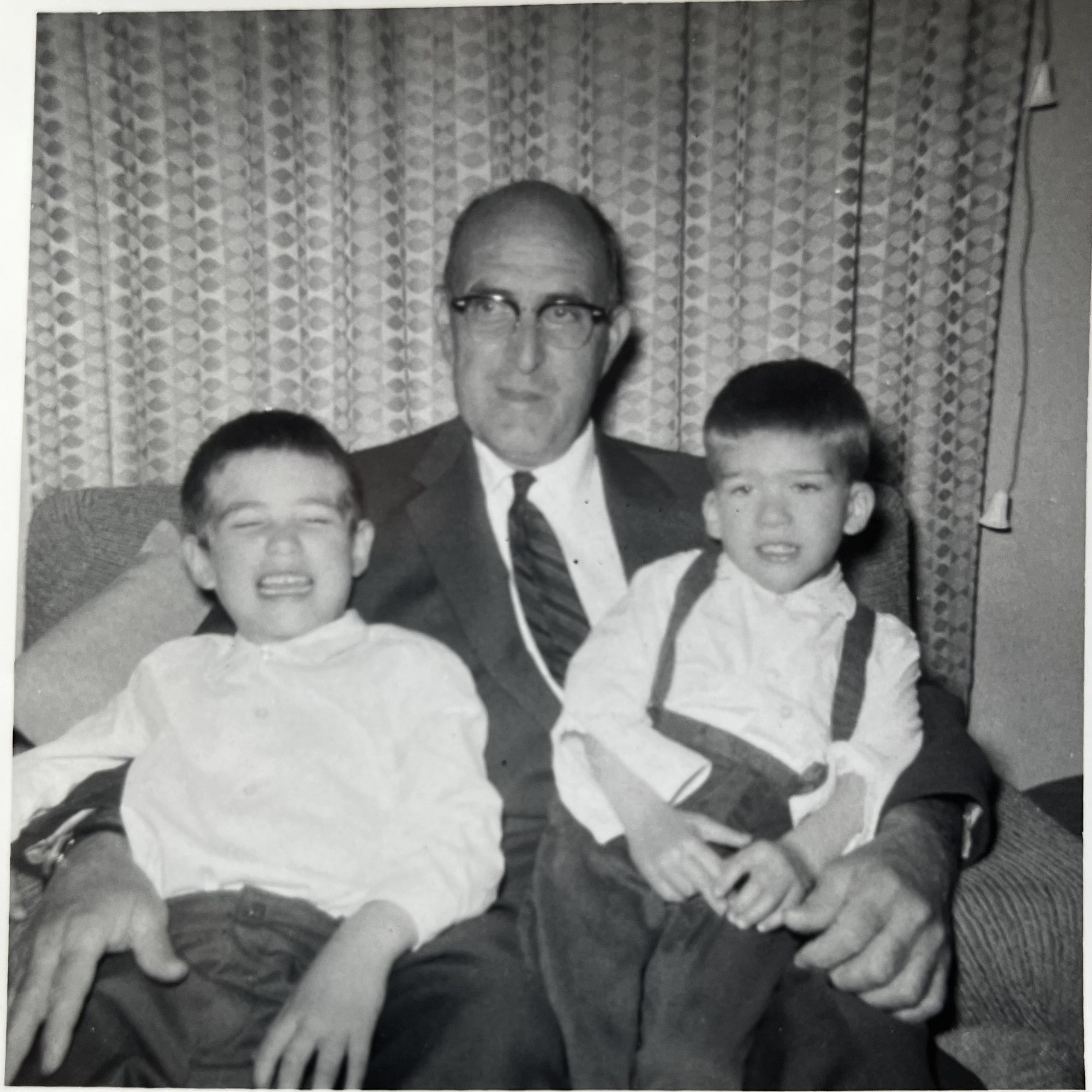
He died the summer before my Senior year in College. He was the only person I ever remember breaking down and crying over. I had just written him a letter two or three days before he died, and I was devastated he wouldn’t get it.

